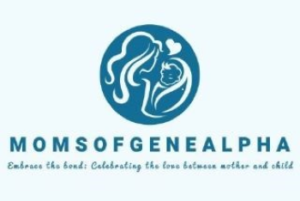Postpartum Depression in India: Breaking the Silence

When we talk about the health of new mothers, we often forget about something important – their mental well-being.
Postpartum depression (PPD) is one such issue that doesn’t get talked about enough.
It’s a condition where mothers feel extremely sad and stressed after giving birth.
This kind of depression is often misunderstood and ignored, but if you’re going through it, remember, you’re not alone.
If you’re feeling down after having a baby, you might be experiencing postpartum depression.
And you’re not the only one. In India, about 22% of women have been diagnosed with PPD, according to the World Health Organization (WHO).
This shows that many mothers go through the same thing you’re going through.
If you’re struggling with postpartum depression, it’s important to know that help is available.
Don’t hesitate to contact loved ones, doctors, or support groups for assistance. You don’t have to face this challenge alone.
Understanding Postpartum Depression
Postpartum depression (PPD) is a mental health condition that affects women after childbirth.
It is characterized by persistent feelings of sadness, anxiety, and despair.
Unlike the “baby blues,” which are relatively mild and short-lived mood swings, PPD is more severe and can last for several weeks or months.
The exact causes of postpartum depression are not fully understood.
Still, hormonal changes, sleep deprivation, physical discomfort from childbirth, and the stress of adjusting to motherhood are thought to contribute to its onset.
Symptoms of PPD can vary but often include intense sadness, hopelessness, worthlessness, changes in appetite, sleep disturbances, and difficulty bonding with the newborn.
PPD can have significant consequences for both the mother and her family if left untreated.
It can affect maternal-infant bonding, parenting efficacy, and overall family functioning.
Therefore, early recognition and intervention are crucial for the mother’s and her baby’s well-being.
Let’s share personal narratives from mothers who have experienced postpartum depression firsthand:
Personal Narratives: Insights from Mothers
Meet Shardha, a mother who bravely shares her journey with postpartum depression:
“After welcoming my baby into the world, I anticipated a flood of joy and love.
Instead, I found myself engulfed by a wave of sadness and guilt.
The weight of motherhood felt overwhelming, and I struggled with feelings of inadequacy.
It was challenging to care for my baby when I was battling my internal turmoil.”
Another mother, Meera, recounts her friend’s harrowing experience with postpartum depression: “
Watching my friend navigate postpartum depression was heart-wrenching.
She initially brushed off her feelings of sadness as normal postpartum emotions.
However, they soon escalated into something much darker.
She felt like she was losing connection with her family and experienced terrifying nightmares about not being able to care for her baby.
It was a painful journey for her, but seeking help was the turning point towards recovery.”
These personal narratives provide poignant insights into the challenges faced by mothers dealing with postpartum depression.
Their stories emphasize the importance of recognizing and addressing mental health struggles during the postpartum period.
Diagnosing Postpartum Depression
Identifying postpartum depression requires a thorough assessment by healthcare professionals trained in maternal mental health.
Typically, doctors employ standardized screening tools such as the Edinburgh Postnatal Depression Scale (EPDS) to evaluate the severity of symptoms.
This questionnaire helps gauge the mother’s emotional well-being by assessing feelings of sadness, anxiety, and guilt, among other indicators.
Additionally, healthcare providers may conduct interviews and physical examinations to rule out other potential causes of distress.
Treatment Options for Postpartum Depression
Addressing postpartum depression often involves a multifaceted approach aimed at alleviating symptoms and promoting overall well-being.
Psychotherapy:
Psychotherapy, or talk therapy, is a cornerstone of postpartum depression treatment.
Cognitive-behavioral therapy (CBT) is particularly effective, as it helps mothers recognize and challenge negative thought patterns that contribute to their distress.
Through CBT, mothers learn coping strategies to manage stress, improve communication, and enhance problem-solving skills.
Additionally, interpersonal therapy (IPT) focuses on resolving relationship conflicts and improving social support networks, which are crucial for maternal mental health.
Medication:
In some cases, medication may be prescribed to alleviate symptoms of postpartum depression.
Antidepressants, such as selective serotonin reuptake inhibitors (SSRIs), are commonly prescribed due to their effectiveness and relatively low risk of side effects for breastfeeding mothers.
However, healthcare providers carefully weigh the benefits and risks of medication, taking into account factors such as the severity of symptoms, maternal preferences, and potential impact on the infant.
Social Support Networks:
Support from family, friends, and support groups plays a vital role in the recovery process for mothers with postpartum depression.
Connecting with others who have experienced similar challenges can provide validation, encouragement, and practical advice.
Peer support groups, both in-person and online, offer a safe space for mothers to share their experiences, seek guidance, and access resources.
Navigating the Recovery Process
Recovering from postpartum depression is a journey marked by resilience, perseverance, and steadfast support.
It’s important to recognize that healing takes time and requires a multifaceted approach that addresses both emotional and practical aspects of maternal well-being.
Embracing Therapeutic Interventions:
Therapeutic interventions, such as counseling and psychotherapy, play a crucial role in the recovery process.
Cognitive-behavioral therapy (CBT) helps mothers identify and challenge negative thought patterns, develop coping strategies, and cultivate resilience.
Through therapy, mothers learn to navigate the complexities of postpartum depression, build self-confidence, and foster healthy relationships.
Cultivating a Nurturing Environment:
Creating a nurturing environment is essential for maternal well-being and recovery from postpartum depression.
This includes establishing routines that prioritize self-care, such as getting enough rest, eating nutritious meals, and engaging in activities that bring joy and relaxation.
Additionally, maintaining open communication with loved ones and setting realistic expectations for oneself can help reduce feelings of isolation and overwhelm.
Seeking Support from Peer Networks:
Support groups, both online and offline, offer invaluable solace and validation to mothers navigating postpartum depression.
Connecting with others who have experienced similar challenges provides a sense of belonging and understanding.
Peer support groups offer a safe space to share experiences, exchange advice, and access resources.
By participating in support networks, mothers can draw strength from one another and find hope in shared experiences of resilience and recovery.
Embracing Resilience and Hope:
Recovery from postpartum depression is not a linear process, but rather a journey marked by ups and downs.
Mothers need to recognize their resilience and celebrate small victories along the way.
By embracing hope and staying committed to self-care and support, mothers can navigate the complexities of postpartum depression with courage and optimism.
Advocating for Awareness and Support
It’s important to raise awareness and build support systems for postpartum depression.
This means talking openly about it and making sure people understand that it’s okay to seek help.
We also need to improve mental health services and make sure they’re available for new mothers who need them.
Conclusion: Let’s Take Action
In conclusion, postpartum depression is a serious issue in India that we need to address.
We can do this by spreading the word, breaking down barriers, and making sure mothers get the support they deserve.
By working together, we can help mothers overcome postpartum depression and embrace motherhood with confidence and joy.
Citations :
World Health Organization. (n.d.). Maternal Mental Health. Retrieved from https://www.who.int/mental_health/maternal-child/maternal_mental_health/en/
Medical Dialogues. (2018). 22% of new mothers in India suffer from postpartum depression: WHO. Retrieved from https://speciality.medicaldialogues.in/22-of-new-mothers-in-india-suffer-from-postpartum-depression-who/
Certainly! Here’s a sample disclaimer you can include at the end of the article:
Disclaimer: The information provided in this article is for educational and informational purposes only and is not intended as a substitute for professional medical advice, diagnosis, or treatment.
Always seek the advice of your physician or other qualified health provider with any questions you may have regarding a medical condition.
Postpartum depression is a serious mental health condition that requires personalized assessment and treatment.
Individual experiences with postpartum depression may vary, and the effectiveness of treatment options can depend on various factors.
The author and publisher of this article do not endorse any specific treatment, medication, or therapy mentioned herein. Reliance on any information provided in this article is solely at your own risk.”

